This site is being reviewed and updated as needed to comply with President Trump's executive orders.
 | BriefsBriefs contain a synopsis of information on specific topics from policy to practice and links for additional information.
|

Clients with behavioral health (BH) conditions provide unique challenges for APS programs, not the least of which is working with a system of services that is often underfunded and has a different mission. The NAMRS data, research, and projects discussed above document the importance of the relationship between BH and APS systems. Only two-fifths of states collect data on BH conditions and, even if they do, often the BH condition of the client is not reported, limiting the understanding of the impact on APS programs. APS programs need to make a commitment to better understanding this important population through increased data collection.
Behavioral Health and APS: The Overlooked Partnership (PDF | 880 KB)

The use of forensics has improved the ability of APS programs and their community partners to better understand and address the needs of persons experiencing adult maltreatment. Although forensic principles are relevant across many areas of APS practice, the published literature most strongly supports forensic centers as an evidence-based approach. This APS TARC technical assistance brief outlines the overall efficacy of forensic centers and discusses important considerations for other APS programs or communities wanting to replicate them.
The Use of Forensics in Adult Protective Services: Implementing a Forensic Center (PDF | 547 KB)
It is important for APS programs to understand how much time it takes to initiate investigations, conduct investigations, provide services, and close the case. This APS TARC brief uses data from the National Adult Maltreatment Reporting System (NAMRS) and the National APS Process Evaluation to describe durations in APS cases and analyze the relationship between duration and other variables in an APS case.
Do Durations Matter in APS Cases? An Analysis of Initiation, Investigation, and Case Timeframes (PDF | 455 KB)
In the recently published federal regulations of adult protective service (APS) programs (“Final Rule”), the Administration for Community Living (ACL) emphasized the importance of the person-centered principles self-determination, person-centered planning, and use of least restrictive alternatives. The purpose of this brief is to better understand the person-centered principles in theory, in the ACL
Final Rule, and in current application in APS programs.
The Importance and Use of Person-centered Principles in Adult Protective Services (PDF | 748 KB)

No one will deny that APS programs vary from state to state. What is often not considered, though, is that APS practices vary within state programs as well. This brief analyzes the intrastate APS practice variation data obtained from the National APS Process Evaluation. It explores questions about how much APS practice varies within states and the patterns in APS practice variation.
Overview of Intrastate Variation in APS Practice (PDF | 2 MB)

Self-neglect is different from other types of maltreatment since it does not involve abuse (unless there are multiple allegations) by a perpetrator. While the definition cites the “inability … to perform essential self-care tasks,” self-neglect is also often the consequence of the failure of formal and informal support networks (familial or social) to compensate for the individual’s difficulty to self-care. This brief provides a comprehensive overview using National Adult Maltreatment Reporting System (NAMRS) data of APS clients/victims and cases in which there is an allegation of self-neglect.
Overview of APS Self-Neglect Cases Using NAMRS Data (PDF | 1.94 MB)

This brief is based on a one-time practice evaluation survey conducted in the spring of 2021. Included data reflects this specific point in time. Anecdotally, we believe that the use of specialized staff has increased since the survey as programs have used recent federal funding to experiment with new practices, including establishing specialized staff and units.
Overview of Use of Specialized Staff in APS Practice (PDF | 828 KB)

As part of the recently completed, soon to be published National APS Process Evaluation (“Evaluation”), the APS TARC asked state APS programs questions in a survey centered around practice (“APS Practice Survey”), administered in the spring of 2021, about their use of tools. The purpose of this brief is to contextualize, summarize, and provide additional analysis of data that were included in the evaluation report.
Overview of Use of Tools in APS Practice (PDF | 912 KB)

Partnerships are critical to APS success. This brief considers the role of partnerships in APS programs and summarizes data from the National Adult Protective Services (APS) Process Evaluation on partnerships, supplemented with National Adult Maltreatment Reporting System (NAMRS) data.
Partnerships: The Lifeblood of APS (PDF | 903 KB)

This brief contains information and resources on a variety of topics from the history of APS to federal resources that can support APS programs and will provide a foundation for understanding some of the complexities of APS program administration.
APS Admin 101: Resources and Information for New Adult Protective Services Administrators (PDF | 1.4 MB)

Intake is the means adult maltreatment reports are received into the APS program. Read about the steps involved in intake and resources for putting a system in place. This brief examines information gathering, assigning, staffing, training and more.
Intake: The Gateway into APS (PDF | 859 KB)
Developing a way to improve the consistency of case findings is of interest to many state APS programs. This brief showcases a protocol that was developed to help California APS programs increase the consistency of their findings and discusses how other states have adapted that protocol.
The Road to Consistent Case Findings (PDF | 809 KB)
Last Modified: 01/29/2026

